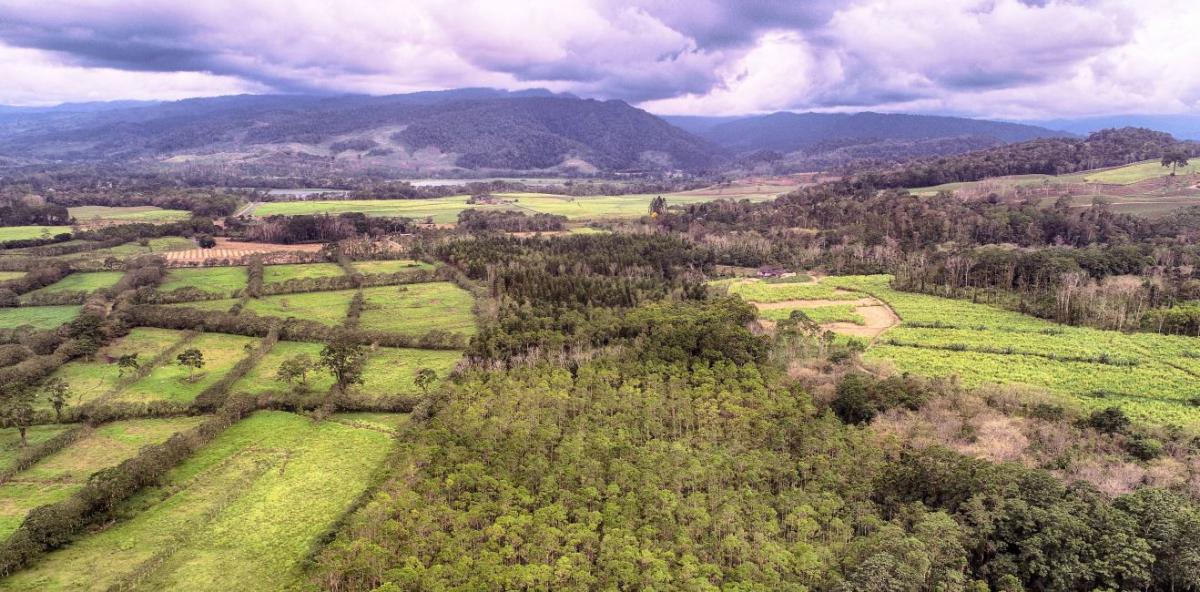- Home
- Worldwide
- CIRAD worldwide
- Projects
- Projet PRPP Costa Rica
Technical assistance to Costa Rica for the implementation of the National Decarbonisation Plan - PRPP COSTA RICA

Forest corridors in the Turrialba region, Costa Rica © Christian Brenez, CATIE
Issues
On 24 February 2019, Costa Rica launched its ambitious Decarbonisation Plan, with the goal of making the country one of the first in the world to achieve net zero emissions by 2050. The plan develops specific actions in different fields, such as transport, agriculture, energy production, energy retrofits, and natural resource management. In this context, the Agence Française de Développement (AFD) has implemented a financing plan to support decarbonisation in Costa Rica and to meet the needs of different institutional partners. CIRAD and the Tropical Agricultural Center of Research and Education (CATIE) in Costa Rica are responsible for technical assistance on two of the project’s components:
- strengthening the uptake by the institutional partners;
- developing a tool to assess the ecosystem services provided by regions that receive payments for environmental services (PES) financed by the National Forestry Financing Fund (FONAFIFO).
Description
As regards strengthening the national Land use, land cover and ecosystems monitoring system (SIMOCUTE) and its uptake by the institutional partners, the project activities are organised around two “work packages” (WPs) or “types of action”:
- support for the production of relevant spatial information, through the definition and construction of key indicators; and training and support for the National Centre for Geo-environmental Information (CENIGA) on innovative tools for forest and ecosystem monitoring;
- assistance for the agriculture and livestock sectors in order to map the presence of carbon in agricultural soils, to develop new analysis and mapping methodologies, and to establish a system to monitor soil carbon stocks at the national level.
With regard to support for FONAFIFO, the goal is to develop a tool to assess the ecological impact of Costa Rica’s PES policy, through three WPs:
- developing a mapping method for environmental service indicators (biodiversity conservation, soil erosion and hydrology);
- analysing the impact of implementing PES on these environmental services at the landscape level;
- building capacities to use the tools developed.
Expected impacts
In the framework of this project, CIRAD and CATIE are helping to define a national strategy to monitor ecosystems and to assess Costa Rica’s PES policy, in particular with the Ministry of Environment.
This project aims to disseminate the remote sensing and spatial modelling tools and methodologies developed by CIRAD/CATIE to all technicians working in the different government institutes.
From a scientific viewpoint, this project is developing a methodology to assess the impact of a PES policy on two service indicators at the landscape level.
























